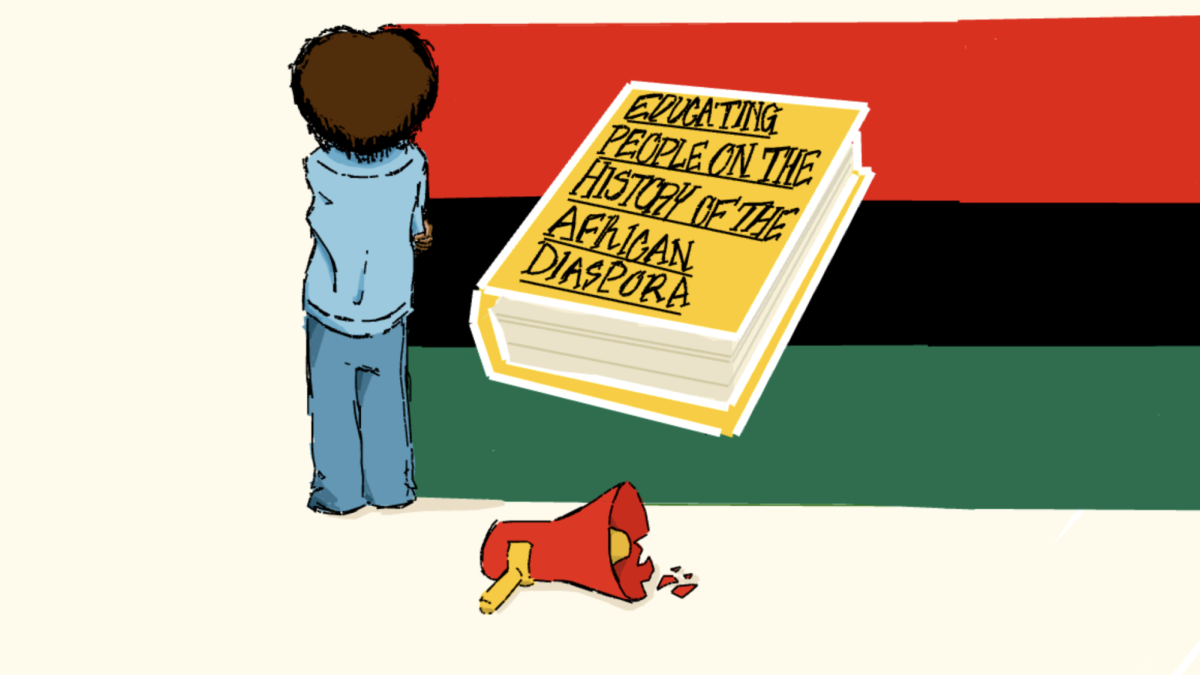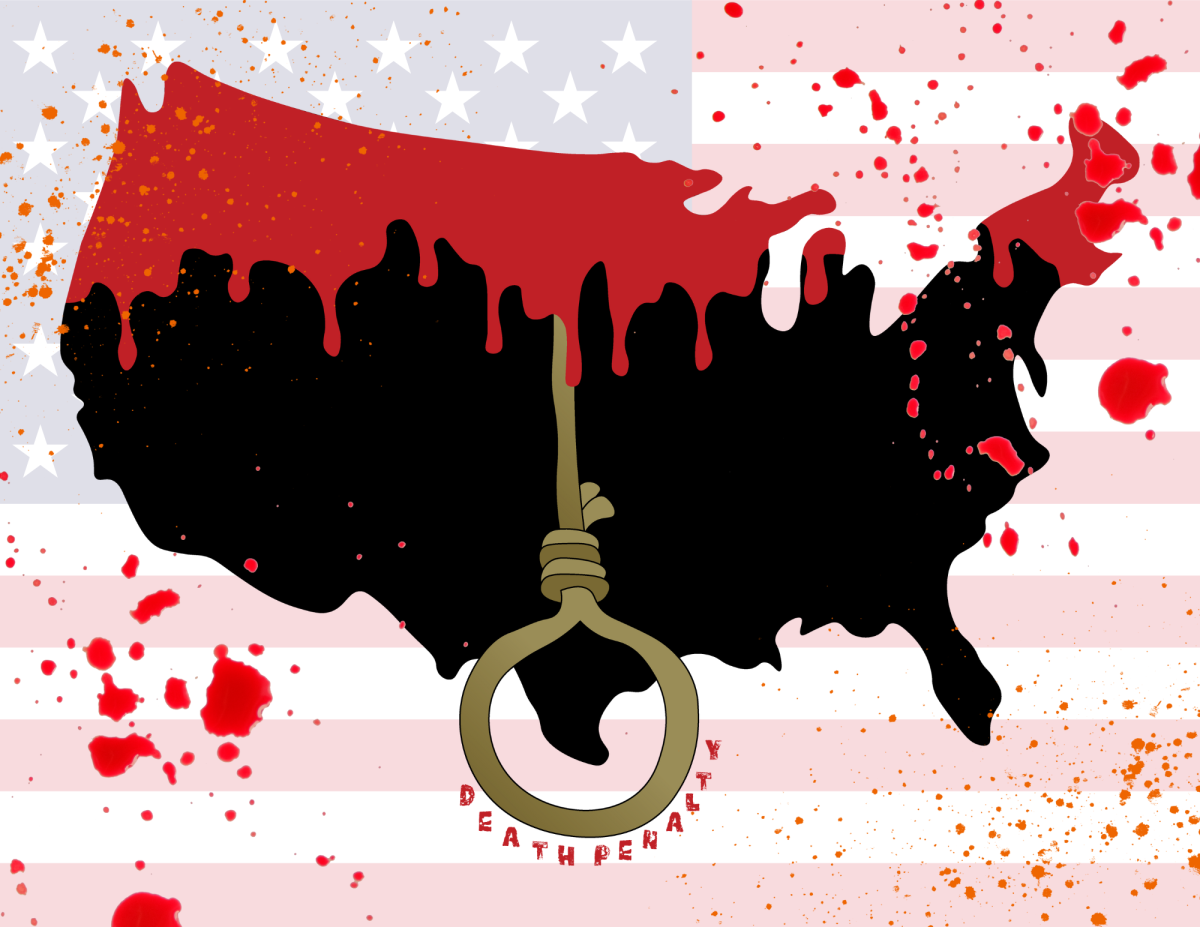College football is a home for rich tradition, rivalries, school pride and just a good old-fashioned game of American football. All season long, fans watch as their favorite universities battle it out on the road to win the college football national championship. However, there is one burning issue with the sport Americans love so dearly: the College Football Playoff.
The College Football Playoff, better known as the CFP, has infuriated fans this past college football season due to the major holes in its new 12-team playoff system. Whether it be a school being snubbed from the playoff bracket or a school that deserves the best chance at the national championship game playing against the toughest opponents, it is clear the CFP’s system has major issues.
In the 2024-2025 season, the CFP committee made a highly anticipated change, extending the playoff bracket to 12 teams instead of the previous four teams. This gave more schools a chance to battle for the coveted national championship. This was seen as an amazing change, as Florida State University was snubbed from the four team playoff despite being an undefeated conference champion.
Many believed the committee would still honor the top four teams in America by rewarding them with byes, while the other eight teams had to win for the right to play these four teams in the quarterfinal of the playoffs.
Unfortunately, this was not the case. As detailed by the National Collegiate Athletic Association, the committee ridiculously decided to award the four best conference champions with the byes instead, leading to weaker teams in the quarterfinal. Since some conferences were weaker than others, schools from these weaker conferences will play football powerhouses at the quarterfinal, leading to a weak match-up. The prime two examples of this were Arizona State University and Boise State University. Arizona State won the Big 12 conference, while Boise State won the Mountain West Conference.
The seeding concept works as follows: teams with higher seeds like the one seed are considered better than the teams at the bottom like the 12 seed. The committee determines the best four conference champions in college football and gives them byes as a reward for their performance. These are the 1-4 seeds. The rest are the 5-12 seeds depending where the committee ranks them.
Despite Arizona State and Boise State both having Heisman finalist running backs, they each did not have the star power to keep up with elite football programs such as the University of Texas and Penn State University, which won in the first round and knocked Arizona State and Boise State out of the playoffs.
In the college football playoff, seeding determines which teams will play each other. This seeding concept was so poor that none of the four teams with byes advanced to the semifinal, a problem easily fixed if the top four teams were awarded byes rather than the four best conference champions.
Another large flaw is the preposterous seeding of the bracket. The biggest choice that angered fans was the decision to admit the University of Indiana into the playoffs. Indiana’s regular season was stellar, finishing with a record of 11-1, their best season since 1967.
However, Indiana had only faced one ranked opponent–Ohio State University–and were abruptly defeated 15-38. This misleading record caused college football fans to argue that they were not worthy of making the CFP. Despite this, the CFP selection committee still bestowed the 10 seed to Indiana and were knocked out in the first round by Notre Dame, losing 17-27.
This awful seeding also led to a batch of snubs. The University of Alabama, a football powerhouse of the last decade, finished with a 9-3 regular season record under new head coach Kalen DeBoer. Despite this being considered a disappointing season for the Crimson Tide, they were ranked inside the top 12 in the AP rankings poll, and were expected to make the playoffs. They were shunned from the playoffs though in favor of Southern Methodist University.
The same case occurred for the University of Miami. UMiami, led by Heisman finalist quarterback Cam Ward, finished an amazing regular season with a record of 10-2. This placed the Hurricanes at the 13 seed, just outside the 12-team playoff picture. Regardless, many believed the committee would still consider them one of the top 12 teams in the nation and award them the final spot in the playoff bracket.
In a shocking move, the committee snubbed UMiami out of the playoffs, instead allowing Clemson University to participate in the CFP with the final spot. This rightfully angered fans, as they believed better teams being left out of the playoffs would lead to more lopsided matchups. These speculations were evident in the first round, as both SMU and Clemson were defeated in the first round in blowout losses. These blowout losses were easily avoidable if the CFP committee did not make these decisions with the seeding process.
The final major flaw is the path to the national championship game. The way the playoff picture was designed left the most deserving teams condemned to go through the gauntlet to make a deep playoff push, while less deserving teams were able to cake walk through the playoffs.
This was most clearly displayed by the University of Oregon. Oregon went through the regular season with a perfect 12-0 record, beating multiple top 25 ranked teams on their way to winning the Big 10 conference title. With these accolades, they were rightfully given the number 1 seed and given a bye.
However, thanks to the awful seeding bracket, their reward for having the best season in college football was playing Ohio State University in the second round. Despite being the 8 seed, Ohio State was considered one of the best teams in the nation and took Oregon down easily.
The opposite of this was endured by Penn State. Penn State came off the regular season with a record of 11-1, where they played one ranked opponent and lost. Their record was good enough to earn the 6 seed, and their path was a walk in the park. Penn State cruised to the semifinal after beating the lackluster SMU and Boise State teams, widely regarded as some of the weakest teams in the playoffs, until they were defeated by Notre Dame in the semifinal.
Oregon, a team that rightfully deserved to have an easy route to the championship, playing Ohio State in the second round was viewed as an awful decision. The committee continued their disgraceful choices by giving Penn State, a team with an easy schedule, easy matchups like Boise State and SMU, angering fans who believed the privilege of an easy playoff road belonged to Oregon.
The College Football Playoff expansion was the right move to make, yet the execution of the move was handled poorly. With issues of the seeding bracket and the shunning of deserving teams, the CFP selecting committee has serious work to do to fix their chaotic system. They have managed to turn what was supposed to be one of the most desired changes in college football into a disaster for fans and teams. If these flaws are not fixed by the CFP soon, they could see a drastic decline in the popularity of one of America’s most prideful pastimes.


































